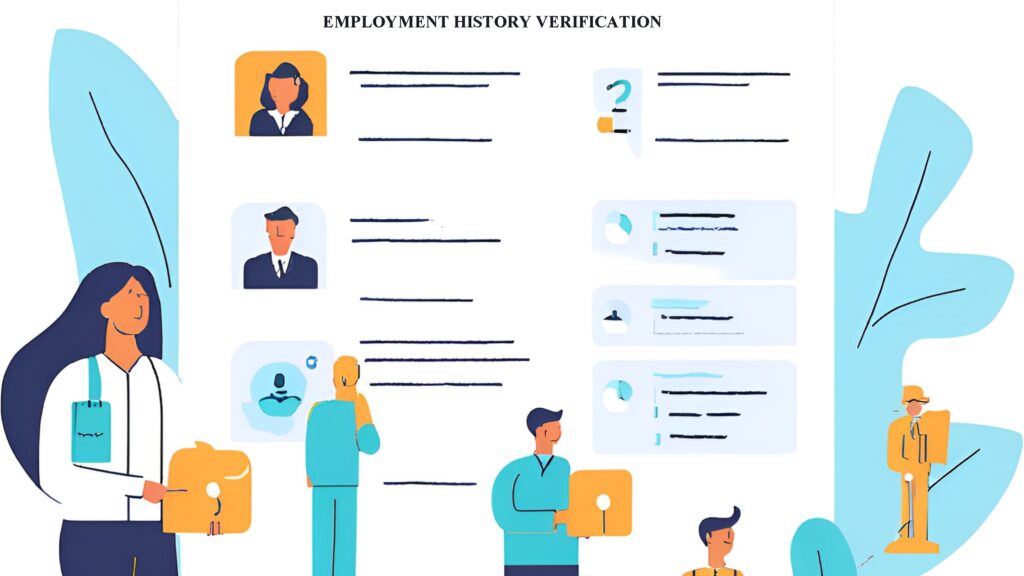
In today’s competitive market, it’s important to know the legal rules for background verification in India. This process is important. It helps the employer make informed hiring decisions. This is to protect business interests and maintain workplace integrity.
The relevant law which governs this aspect may, however, would seem to be a task. Here are ten important legal facts about background checks in India that employers should know
1. Legal Framework Governing Background Checks
There is no centralized all-in-one law in India that acts as a regulator of background verification. However, there are several affecting the process.
Employment agreements are governed by the Indian Contract Act of 1872. The handling of personal data is regulated by the Information Technology Act of 2000. The Right to Privacy, as confirmed by the Supreme Court, also applies. Additionally, the Right to Privacy, as confirmed by the Supreme Court, also applies.
Simple Explanation: Employers must follow various rules because there is no single legal framework in the law. One important law is the Indian Contract Act of 1872. It covers the legality of employment contracts and regulates agreements between employers and employees. On the other hand, the Information Technology Act, 2000, and all amendments thereafter provide guidelines on the handling of electronic data to build the most desired aspects of cyber security and the protection of data.
2. Right to Privacy
The landmark ruling by the Supreme Court in 2017 established privacy as a fundamental right. Employers need to ensure that background checks do not infringe upon the privacy rights of the candidates. Collect and use personal information only for the purposes for which consent is explicitly given.
Simpl Explanation: This decision on the Right to Privacy creates a deep impact on background verification. Employers need to structure the verification process while respecting individuals’ rights and ensuring transparent and ethical handling of personal information.
Explaining to the candidate what information will be collected is important. It is important to explain how the information will be used. Getting their permission before proceeding with the exercise is important.
3. Consent
Employers need to get permission in writing from candidates before doing a background verification. Employers must ask for written permission from candidates before conducting a background check. They should specify the requested information, reasons for needing it, job position, and extent of verification.
Detailed Description: Written consent provides a legal protection to both parties. It makes sure candidates understand the verification process and agree to it willingly. This consent document must be thorough and include all background checks, such as education, criminal, and employment history. It should also specify which agency will conduct these checks.
4. Data Protection and Confidentiality

The 2011 IT Rules require employers to handle personal data responsibly. Employers need to use good security practices to protect candidates’ sensitive information when checking their background.
Detailed Description:An employer must employ reasonable security practices to protect sensitive personal data. It includes strong measures of protection of data such as data encryption, access controls, and regular security audits. Violation of such rules leads to a company’s legal liabilities and loss of goodwill.
5. Criminal Conviction Check
Employers should know that accessing police records through sneaky ways is illegal, even though background checks are common practice. Employers can request a police clearance certificate from candidates or use third-party verification services that follow legal standards.
Detailed Explanation: Criminal record checks should be done in accordance with the law. Illegal access of police records is invasion of privacy, and it attracts a legal suit. Employers should seek candidates with a police clearance certificate.
This document is issued by the police and confirms a clean record. It is important for employers to verify this information before hiring someone. A police clearance certificate can help ensure a safe and trustworthy work environment.
6. Educational Verification
Quite often, employers check the education of the candidates to prove that they really had the claimed credentials. To make sure you have the right information and prevent legal issues, it’s crucial to get it from authorized sources like schools or agencies.
Detailed Explanation: Educational verification helps to verify if a candidate has genuinely achieved what they claim. Employers should contact institutions directly or use verification agencies to get current information about a candidate. This will also assist in avoiding the probability of employing people having fake qualifications.
7. Employment History Verification

Screening the employment history of a candidate is pretty common. Employers should contact previous employers in a respectful and professional way. This is to verify the accuracy of information and ensure that no confidentiality agreements are in place.
It is important to handle this communication with care and consideration. This will help maintain a positive relationship with all parties involved.
Detail Explanation: Employment background verification checks previous job titles, responsibilities, and reasons for leaving. Approach the former employers in a professional and discreet manner to ensure accurate information is received. This assesses the work experience and reliability of the candidate.
8. Credit History Checks
Credit checks may be done on people in financially responsible positions, but only if they agree to it. This is governed by the Credit Information Companies (Regulation) Act, 2005.
Detail Explanation: Credit history background checks could help portray the candidate in terms of financial responsibility and reliability. Relevant positions are those where the candidate will hold the company’s finance or other extremely sensitive financial information. Employers need the candidate’s express permission before proceeding with such checks and they need to comply with the provisions of the law.
9. Adverse Action Notifications
If a background verification reveals information against the candidate, the employer needs to notify the candidate and give him or her an opportunity to clarify or refute such findings.
Detailed Explanation: The adverse action notices are part of the procedure for a fair background verification check. If negative information is found in a background verification, the employer must inform the candidate. The candidate should be given an opportunity to explain how the negative information may impact their job prospects.
This is important for transparency and fairness in the hiring process. This makes the hiring process transparent and fair to the candidates.
10. Third-Party Verification Services
Many employers will outsource this process to third-party verification providers for compliance and accuracy. The employer should ensure that the service provider follows laws regarding information security and privacy. This is important when selecting a service provider. The agency must comply with these laws to protect sensitive information. It is the responsibility of the employer to verify this compliance.
Third-party background verification services can help organizations by offering expertise and resources that they may lack. These services can simplify the process of conducting background verification. They have the knowledge and tools needed to efficiently complete the checks. This can save the organization time and effort.
Employers should choose reputable agencies that follow the law and have strong data security measures in place. This will help ensure a fast, accurate, and legally compliant background verification process.
How Clavius Solutions Can Help:

Navigating the legal complexities associated with the background verification process can be complex. Clavius Solutions provides thorough background verification services that meet the needs of B2B businesses. Our services will make sure that your hiring process is thorough, legal, and fast, helping your business grow with confidence. Our services include:
• Comprehensive background checks: criminal records, educational qualification checks, employment history, and more.
• Data Security – Use strict measures in data protection so candidate data remains confidential and safe.
• Legal Compliance – Assure that all background checks are done in compliance with the law and protect your business from risky legal situations.
Hold the upper hand in business with hiring decisions. Follow Clavius Solutions in LinkedIn for background verification and other HR solutions. Know how our services smoothen the hiring process, protecting business interests.
Employers can conduct thorough background verification by understanding these ten legal facts. This will help them follow the law and select the best candidates. Contact Clavius Solutions with your expert guidance and professional verification services to meet your needs in recruitment.


